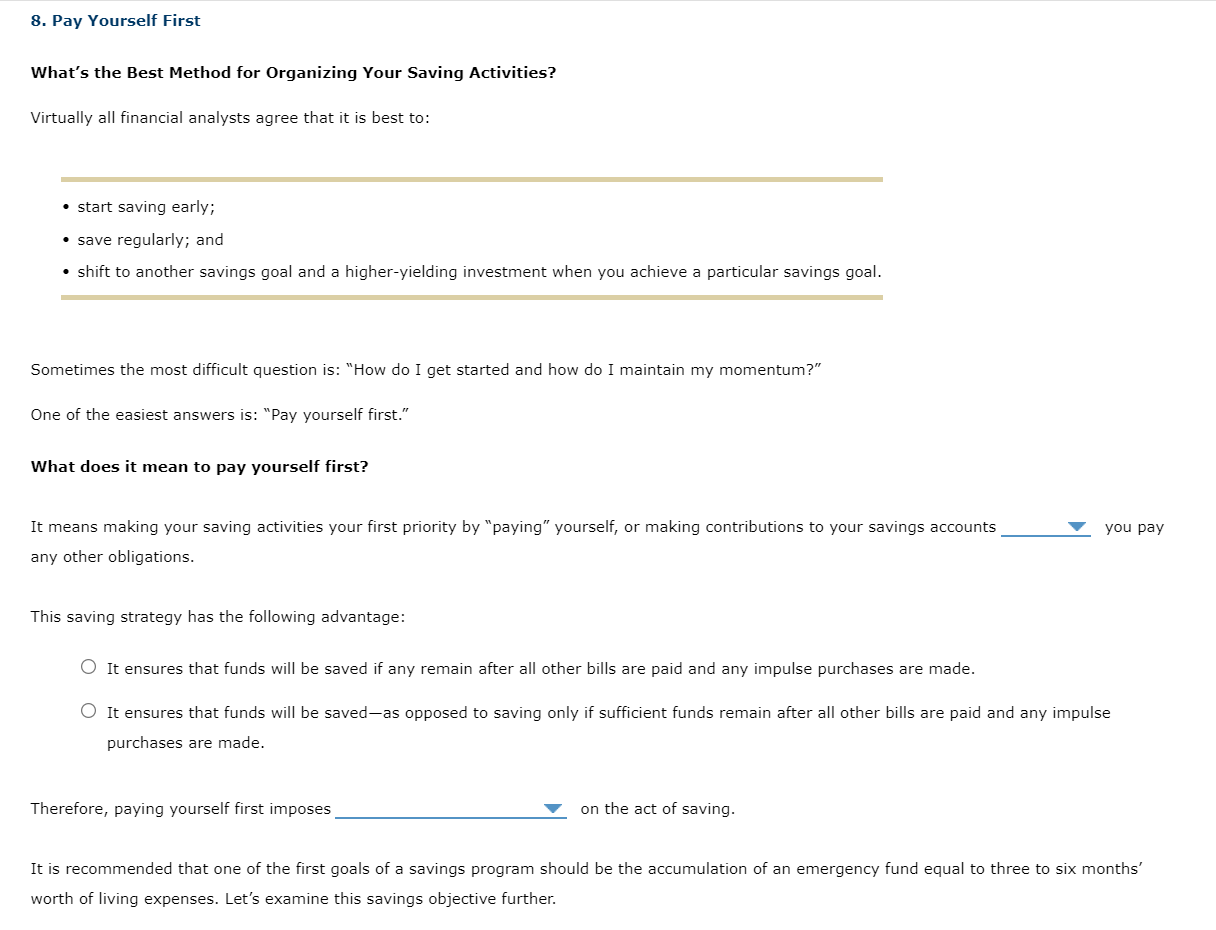Question
It means making your saving activities your first priority by paying yourself, or making contributions to your savings accounts after or before you pay any


It means making your saving activities your first priority by "paying" yourself, or making contributions to your savings accounts after or before you pay any other obligations.
Therefore, paying yourself first imposes financial impulsiveness or financial discipline on the act of saving.
However, most people don't maintain an emergency living expense savings fund; instead, they expect to rely on their debit card or their credit cards to pay their living expenses during these expensive and stressful events. The downside, or negative consequences, of this strategy is that it reduces, rather than increases, their wealth as it involves the payment, rather than receiving, of interest or income.
8. Pay Yourself First What's the Best Method for Organizing Your Saving Activities? Virtually all financial analysts agree that it is best to: - start saving early; - save regularly; and - shift to another savings goal and a higher-yielding investment when you achieve a particular savings goal. Sometimes the most difficult question is: "How do I get started and how do I maintain my momentum?" One of the easiest answers is: "Pay yourself first." What does it mean to pay yourself first? It means making your saving activities your first priority by "paying" yourself, or making contributions to your savings accounts you pay any other obligations. This saving strategy has the following advantage: It ensures that funds will be saved if any remain after all other bills are paid and any impulse purchases are made. It ensures that funds will be saved-as opposed to saving only if sufficient funds remain after all other bills are paid and any impulse purchases are made. Therefore, paying yourself first imposes on the act of saving. It is recommended that one of the first goals of a savings program should be the accumulation of an emergency fund equal to three to six months worth of living expenses. Let's examine this savings objective further. What is the purpose of an emergency living expense savings fund, and what other sources of funds are sometimes used to address these needs? To accumulate the funds that allow you to cover the following household costs: Expenses incurred during vacations, holidays, and birthday celebrations Living expenses in the event of a job layoff, illness, injury, or the premature death of an income-generating member of the household However, most people don't maintain an emergency living expense savings fund; instead, they expect to rely on to pay their living expenses during these expensive and stressful events. The downside, or negative consequences, of this strategy is that it reduces, rather than increases, their wealth as it involves the payment, rather than receiving, ofStep by Step Solution
There are 3 Steps involved in it
Step: 1

Get Instant Access to Expert-Tailored Solutions
See step-by-step solutions with expert insights and AI powered tools for academic success
Step: 2

Step: 3

Ace Your Homework with AI
Get the answers you need in no time with our AI-driven, step-by-step assistance
Get Started


